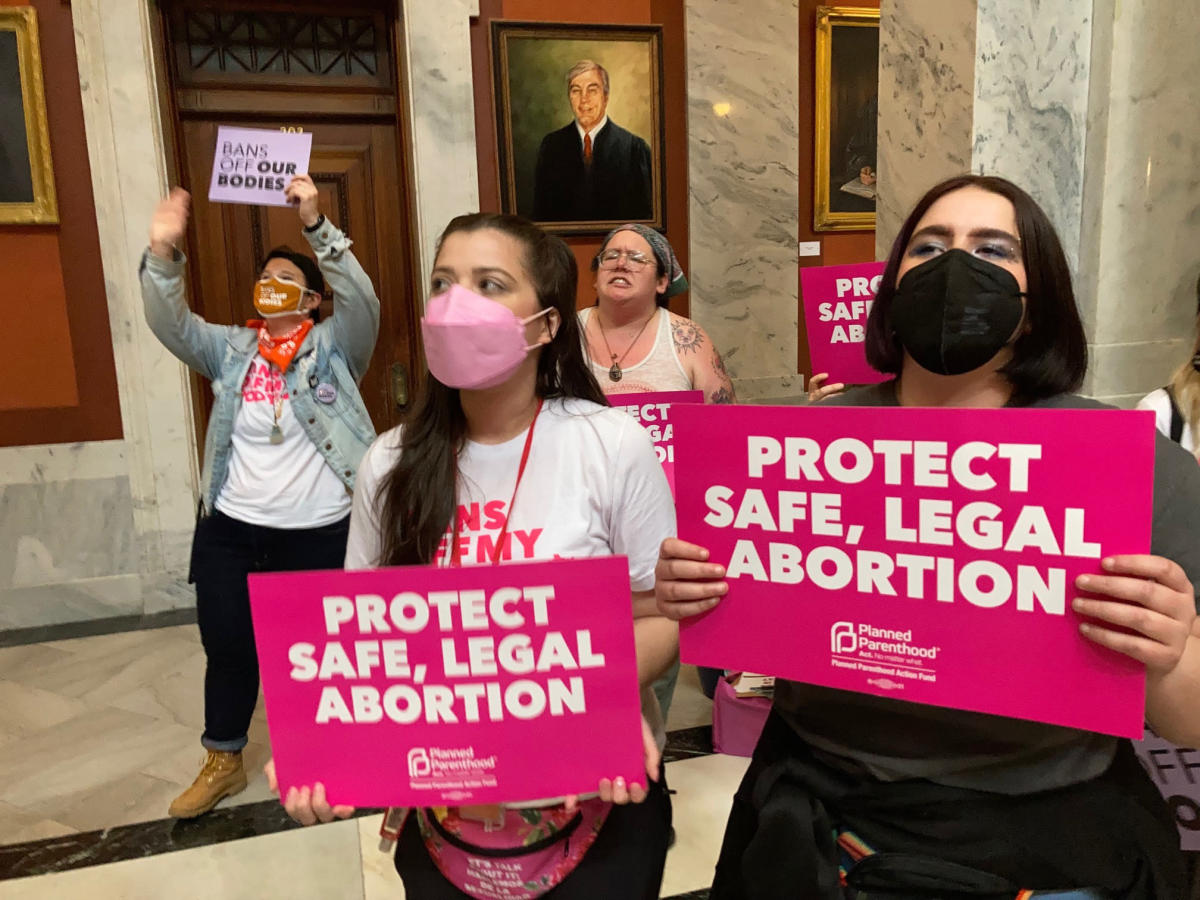
LOUISVILLE, Ky. (AP) — A Kentucky judge granted an injunction on Friday that prevents the state’s near-total ban on abortions from taking effect, meaning the state’s two clinics can continue providing abortions, for now.
Jefferson Circuit Judge Mitch Perry’s ruling says there is “a substantial likelihood” that Kentucky’s new abortion law violates “the rights to privacy and self-determination” protected by Kentucky’s constitution.
The injunction issued in Louisville allows the state’s only two clinics to continue providing abortions while the case is litigated.
Kentucky’s trigger law was meant to ban abortions as soon as the U.S. Supreme Court overturned Roe v. Wade, but Perry issued a restraining order in June blocking the ban. His ruling means that of the 13 states with trigger bans, five are in effect.
Kentucky Attorney General Daniel Cameron, a Republican running for governor, said he was disappointed by the ruling and will appeal it to the state appeals court.
“The judge’s suggestion that Kentucky’s constitution contains a right to abortion is not grounded in the text and history of our state’s governing document,” Cameron said in a prepared statement. “We will continue our steadfast defense of these bipartisan laws that represent the Commonwealth’s commitment to the lives of the unborn.”
Kentucky’s trigger law contains a narrow exception allowing a physician to perform an abortion if necessary to prevent the death or permanent injury of the pregnant woman. Gov. Andy Beshear, a Democrat, has denounced that law as “extremist,” noting it lacks exceptions for rape and incest.
Thirteen states created trigger bans, and of those, at least five are currently in effect: Arkansas, Mississippi, Missouri, Oklahoma and South Dakota. Five are not due to take effect yet: Idaho, North Dakota, Tennessee, Texas and Wyoming. The remaining three — in Kentucky, Louisiana and Utah — are not in effect because of litigation.
In all, about half the U.S. states are likely to have bans or deep restrictions in place as a result of the Supreme Court ruling.
Perry, the Kentucky judge, held a hearing on July 6 to listen to arguments on the injunction. A doctor who performs abortions at one of the clinics cited statistics she said showed that pregnancy can be more dangerous to the health of a mother than abortion.
Perry also wrote in his ruling that the trigger ban is “an arguably unconstitutional delegation of authority,” since it depended on another “jurisdictional body” — the U.S. Supreme Court.
Kentuckians are set to vote in November on a constitutional amendment that would ensure there are no state constitutional protections for abortion.
In Louisiana, another state with a court-contested trigger ban, a state judge on Thursday blocked enforcement of its abortion ban. On Friday, state officials asked the same judge to suspend his own ruling while they pursue an appeal. Judge Donald Johnson’s preliminary injunction meant clinics in Shreveport, Baton Rouge and New Orleans could provide abortions while the lawsuit continues.
___
This story corrects the reason that Texas’ trigger ban has not taken effect yet in paragraph 8.
__
Associated Press writers Kevin McGill contributed from Baton Rouge, Louisiana, and Geoff Mulvihill from Philadelphia.




